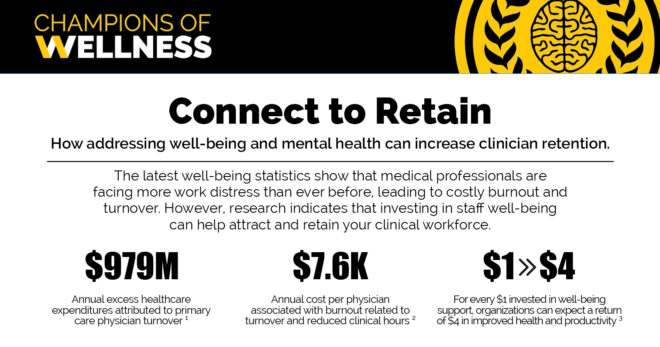What is a Mental Health Counselor ? Discover the Vital Role Experts Play
A Mental Health Counselor is a professional who helps individuals cope with emotional or psychological challenges through therapy. They offer support and guidance for managing mental health conditions.
Mental Health Counselors utilize various therapeutic techniques to assist clients in improving their overall well-being and quality of life. Their goal is to provide a safe and non-judgmental space for clients to explore their thoughts and feelings, develop coping strategies, and work towards personal growth.
With their expertise in mental health issues, these counselors play a crucial role in promoting mental wellness and empowering individuals to lead fulfilling lives. Partnering with a Mental Health Counselor can be a valuable step towards achieving emotional balance and addressing psychological concerns effectively.
The Role Of A Mental Health Counselor
Mental Health Counselors play a vital role in supporting individuals with various mental health concerns.
They provide counseling and therapy to clients experiencing emotional distress and mental health issues.
Responsibilities include assessing clients’ needs, developing treatment plans, and offering support and guidance.
To pursue this career, individuals need a master’s degree in counseling or a related field.
Training involves clinical experience and passing a licensing exam to practice as a counselor.

Credit: www.facebook.com
Understanding Mental Health Counseling
A mental health counselor is a trained professional who helps individuals, couples, families, and groups facing mental health challenges. They provide therapy and support to help clients develop coping mechanisms and improve their overall well-being. Mental health counseling involves the use of various techniques and approaches to address emotional, behavioral, and psychological issues. Counselors may utilize a combination of talk therapy, cognitive-behavioral therapy (CBT), mindfulness techniques, and other evidence-based practices to assist clients in understanding and managing their mental health conditions.
The scope of practice for mental health counselors may vary depending on their qualifications and licensing regulations in their respective jurisdictions. They may work in a variety of settings such as clinics, hospitals, schools, and private practices. Some counselors specialize in specific areas like substance abuse, trauma, or child and adolescent therapy, while others may provide general counseling services. Ultimately, mental health counselors aim to provide a safe and supportive environment where individuals can explore their feelings and thoughts, gain insight, and develop strategies to improve their mental well-being.
Importance Of Mental Health Counseling
Mental health counseling plays a vital role in promoting well-being and addressing mental health disorders. Counselors help individuals navigate through difficult emotions, thoughts, and experiences, providing guidance and support along the way. Their expertise allows them to identify underlying issues and develop personalized treatment plans for patients.
Mental health counselors offer a safe and non-judgmental environment for individuals to express themselves freely. They provide coping strategies, teach healthy communication skills, and empower individuals to make positive changes in their lives. By addressing mental health disorders, counselors help reduce symptoms such as anxiety, depression, and stress, enhancing overall mental well-being and quality of life.
Through evidence-based practices, mental health counselors promote self-awareness, resilience, and personal growth. They assist individuals in understanding their emotions, cultivating healthy relationships, and developing effective problem-solving skills. By empowering individuals to take control of their mental health, counseling can lead to increased self-esteem, improved decision-making, and a greater sense of fulfillment in life.

Credit: www.qwikresume.com
Different Approaches In Mental Health Counseling
Mental health counseling involves various approaches, including cognitive-behavioral therapy, psychodynamic therapy, and humanistic therapy. A mental health counselor provides therapy and support to clients dealing with mental health challenges, helping them navigate their emotions and develop coping strategies.
| Mental Health Counselor: Provides therapy for emotional well-being. |
| Cognitive-Behavioral Therapy (CBT): Focuses on changing negative thought patterns. |
| Person-Centered Therapy: Emphasizes empathy and genuine connection with clients. |
Challenges Faced By Mental Health Counselors
A mental health counselor faces various challenges in their profession. One major challenge is dealing with the stigma attached to mental health. Many people still hold negative beliefs and misconceptions about mental illnesses, which can lead to discrimination and a lack of understanding. Mental health counselors often have to work towards combating these stigmas and educating others about the realities of mental health. Another challenge faced by counselors is workplace stress. The nature of their work can be emotionally demanding, as they provide support and guidance to individuals in distress. This can lead to burnout and emotional exhaustion if counselors do not prioritize self-care and seek support themselves.

Credit: www.linkedin.com
Specializations Within Mental Health Counseling
|
Mental Health Counselors specialize in Trauma Counseling and Child and Adolescent Counseling. |
Cultural Competence In Mental Health Counseling
A mental health counselor provides support and guidance to individuals facing emotional and psychological challenges. They utilize their expertise in cultural competence to understand diverse backgrounds and beliefs, ensuring effective counseling and fostering a safe and inclusive environment for their clients.
Their specialized approach enables them to address unique cultural considerations and tailor treatment plans accordingly.
| Mental Health Counselor: | Understanding Diversity: Providing inclusive care is crucial for mental health counselors to effectively support clients from various backgrounds. |
| Cultural Competence: Being culturally competent means recognizing and respecting differences in beliefs, values, and traditions. |
Ethical Considerations For Mental Health Counselors
Confidentiality is a vital aspect of ethical considerations for mental health counselors. These professionals are legally and ethically obligated to maintain the privacy and confidentiality of their clients. This means that anything shared during therapy sessions must remain strictly confidential unless the client gives explicit consent for disclosure. Breaking confidentiality can only occur in limited situations when the counselor determines there is a risk of harm to the client or others.
Professional boundaries are equally important for mental health counselors. They must establish and maintain appropriate boundaries with their clients to ensure the therapeutic relationship remains focused on the client’s needs. These boundaries include avoiding dual relationships, such as having a personal or financial involvement with the client, and refraining from excessive self-disclosure. By maintaining professional boundaries, counselors can help create a safe and trusting environment for their clients to explore their mental health concerns and work towards their goals.
Frequently Asked Questions On What Is A Mental Health Counselor
What Is The Role Of A Mental Health Counselor?
A mental health counselor helps individuals cope with emotional and psychological challenges through therapy and support.
Is A Mental Health Counselor The Same As A Therapist?
A mental health counselor and a therapist are similar in their roles of providing therapy for mental health issues. Both can offer counseling services, but the specific titles and qualifications might vary.
What Is Another Name For A Mental Health Counselor?
A mental health counselor is also known as a therapist or psychotherapist. They provide counseling and therapy to help individuals with their mental and emotional well-being.
What Is The Difference Between Mental Health Counseling And Clinical Psychology?
Mental health counseling focuses on therapy for emotional well-being, while clinical psychology involves diagnosing and treating mental disorders.
Conclusion
In sum, mental health counselors play a crucial role in supporting individuals’ well-being. Their empathetic approach and specialized skills make them invaluable in helping people navigate life’s challenges. By seeking help from a counselor, individuals can enhance their mental health and overall quality of life.


-2.jpg)
